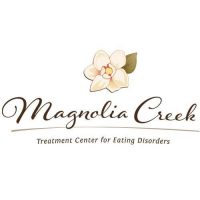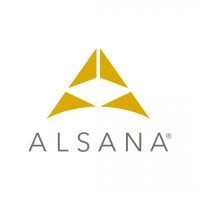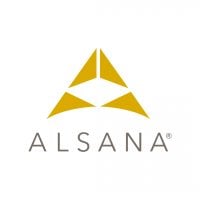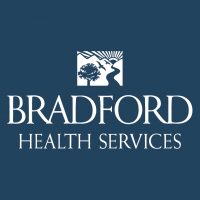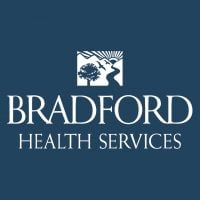Chilton - Shelby Mental Health Center - Hamilton Center
Drug Rehab Center in Calera, Alabama
Chilton - Shelby Mental Health Center - Hamilton Center in Calera, Alabama is a non-profit, community-based, regional behavioral health center that offers comprehensive mental health, substance abuse, forensic, and rehabilitation services for individuals facing mental illness, intellectual disabilities, and chemical addiction, with a focus on helping them achieve independence and recovery.
About Chilton - Shelby Mental Health Center - Hamilton Center in Alabama
Chilton Shelby Mental Health Center–Hamilton Center in Calera, Alabama, offers psychiatric care and addiction recovery services for all ages. They provide specialized programs for children, adolescents, young adults, seniors, pregnant and postpartum women, and individuals with hearing impairment or HIV/AIDS. With dual diagnosis care, adult intensive day programming, outpatient services, and aftercare planning, they support clients throughout their recovery journey.
• Intensive day treatment program: Designed for clients needing high-level supervision and support, this program includes medical and mental health assessments, personalized care plans, counseling, and life skills training.
• General outpatient and aftercare services: Ensuring a continuum of care, these services may include step-down support, 12-step program facilitation, and referrals for additional services.
• Evidence-based complementary therapies: Recreational therapy and other complementary approaches are available to support recovery.
Chilton Shelby Mental Health Center–Hamilton Center is state licensed and Joint Commission accredited, ensuring high-quality care. Their intensive day treatment program is tailored to meet the needs of clients in early recovery, those stepping down from inpatient treatment, and those at risk of relapse.
The center treats a range of addictions and mental health issues, offering both dual diagnosis care and specialized programming for specific populations. Treatment methods include individual, group, and family counseling, as well as life skills training and evidence-based complementary therapies. They provide outpatient care and aftercare planning to support long-term recovery.
Genders
Ages
Modality
Additional
Accreditations
State License
Conditions and Issues Treated
Many people who struggle with opioid addiction need to attend specific programs like methadone , Suboxone or Vivitrol clinics.
These types of programs will provide the patient with legal, prescription medications that can help them overcome their cravings for illegal opioids like heroin or fentanyl . If the patient has a chronic condition like Hepatitis C, they must undergo treatment before they can begin taking these medications.
Dual Diagnosis is a specific relationship between two or more disorders that have the same symptoms and can sometimes be treated together. This is used in the treatment planning process when dealing with drug addicts. Dual diagnosis can be viewed as a chronic medical condition that has comorbid psychiatric disorders.
Although addiction and a mental illness may have separate symptoms that are not easy to detect, they often go hand in hand. Many times, drug abuse is a direct result of the mental illness. In other words, treating the addiction will not resolve all of your issues. Unless you also treat the underlying mental illness, you will not be successful in achieving sobriety.
Levels of Care Offered
This center offers a variety of custom treatment tailored to individual recovery. Currently available are Aftercare Support, Drug Rehab, Dual-Diagnosis, Inpatient, Intensive Outpatient, Outpatient, Residential, with additional therapies available as listed below.
Inpatient treatment is an intensive program that takes place when a patient checks into a rehabilitation facility. The treatment includes detoxification and counseling sessions, which are round the clock. Outpatient treatments are also available, but inpatient care is advised as the first step of rehabilitation.
Intensive rehab ensures the patient stays in a substance-free atmosphere, improving treatment success rates. The patient participates in group therapy for motivation from other patients who have overcome addiction. Family members are also involved in providing emotional support throughout the program.
An intensive outpatient program is usually the first phase of addiction treatment. It provides relief for those who are addicted, but are not ready to commit to an inpatient setting. Typically, the patient lives at home and is able to work or go to school. IOPs consist of a daily 3 to 5-hour program, and there is a required number of hours per week. Most patients go to IOP between 20 and 40 hours per week. The patient attends group counseling and individual therapy throughout the duration of treatment. They also meet daily with their therapist to discuss how it’s going and where they are in the recovery process.
The goal here is to teach patients healthy coping skills, such as stress management and identifying thoughts and behaviors that lead to relapse. The implementation of these skills will be useful as the individual transitions into the next phases of treatment.
An outpatient treatment program is set up to help with alcohol or drug addiction, or a co-occurring disorder. The patient must attend the Alabama facility for their therapy and other programs but are able to return home each night. The frequency of mandatory attendance decreases after much of Chilton - Shelby Mental Health Center - Hamilton Center‘s program is complete.
Residential treatment programs are those that offer housing and meals in addition to substance abuse treatment. Rehab facilities that offer residential treatment allow patients to focus solely on recovery, in an environment totally separate from their lives. Some rehab centers specialize in short-term residential treatment (a few days to a week or two), while others solely provide treatment on a long-term basis (several weeks to months). Some offer both, and tailor treatment to the patient’s individual requirements.
Aftercare is a term that’s used to refer to any sort of continuing care offered for a drug addict who has voluntarily entered a rehabilitation program. This type of care can be provided in several settings, including outpatient therapy sessions after the addict has completed an inpatient program. There are also 12-step support groups, such as Alcoholics Anonymous, which can provide additional help for addicts trying to stay sober.
Therapies & Programs
Individual Therapy is a critical component of addiction recovery. Therapists work with patients to identify the root of their addiction and figure out how to better handle the issues that led to them using drugs. Individual Therapy is the one-on-one session where people meet with their therapist. Individual therapy provides a safe space for people to open up and discuss personal and sensitive topics which they may not feel comfortable discussing in a group setting.
Couples therapy at Chilton - Shelby Mental Health Center - Hamilton Center focuses on addiction treatment for the addict and their spouse. The addict’s family, not just the addict, can benefit from this form of therapy. Couples therapy addresses communication problems, trust issues, lack of intimacy, and abuse in intimate relationships. Couples therapy can help rebuild trust between partners, which increases the chances for successful treatment and sustained recovery.
Intimate relationships can be damaged during addiction, and professional help may be necessary to rebuild the often destroyed trust and love. Couples therapy at Chilton - Shelby Mental Health Center - Hamilton Center helps couples improve communication and rebuild trust. Either or both partners will be helped by this treatment administered by professionals. This treatment can also help one or both partners if addiction is the problem.
Family therapy will also help families realize that the addiction is not their fault. For many years, people blamed themselves for an addict’s behavior and felt that they had done something wrong. This is not the case. Addiction is a disease, and it can strike anyone, even if their life seems fine from the outside. It can bring a lot of shame to a family when they have an addict in their midst, but if everyone is open and honest with each other, then they can help everyone stay in recovery.
Group Therapy is utilized by drug treatment centers like Chilton - Shelby Mental Health Center - Hamilton Center to provide the recovering drug addict with a platform to talk about their feelings and experiences. It also provides for an opportunity to learn from other addicts who have successfully overcome their addiction.
Group Therapy is employed in lectures, seminars, or discussion groups (the latter two are typically conducted as “therapy groups”). It is recommended that all group members be recovering addicts for this type of therapy to work (though it does not exclude others with lived experience).
Trauma therapy is a clinical process that helps individuals deal with mental stress often caused by traumatic events. It is generally done for children, teenage victims of sexual assault, and war veterans. The therapist helps the person identify, understand and work through the problem. This is done with the help of talking about it in group or one-on-one counseling sessions. Therapists use relaxation, role-playing, art, and music to help the person open up about what is bothering them.
Dialectical Behavior Therapy (DBT) is used by drug treatment centers across the United States to help drug addicts become sober. DBT combines traditional behavioral treatments with elements from DBT, including dialectics, distress tolerance, and interlocking issues. It is commonly used to treat Borderline Personality Disorder (BPD) along with substance abuse disorders. The four DBT modules are mindfulness, interpersonal effectiveness, emotion regulation, and distress tolerance.
Cognitive behavioral therapy is also a popular service for individuals living with addiction. This type of supportive treatment uses both one-on-one counseling and group sessions to teach addicts how to identify thoughts, behaviors and emotions that might increase their risk of relapse.
These professionals can help addicts develop coping skills for managing stress, improving self-esteem and overcoming triggers. They might also use behavioral therapy to help addicts learn how to avoid cravings and warning signs that could lead them back into addiction.
Therapy can be used as a step-down from inpatient treatment or as the primary method of overcoming an addiction. No matter which option is best for the addict, they will teach important emotional coping techniques, which can make it easier for addicts to get through the tough days.
Training in improved life skills helps those recovering from addiction feel more capable of self-care. Chilton - Shelby Mental Health Center - Hamilton Center are daily skills that give the person the tools they need to survive.
The therapy covers practical activities like cooking, job hunting, social interaction, and money management, helping to fill in the knowledge gaps caused by addiction.
These life skills help the person self-manage their recovery and stay on track. It also reduces relapse risk as they gain confidence in their day-to-day abilities.
Patient Experience
Experiential Therapy at Chilton - Shelby Mental Health Center - Hamilton Center
Experiential therapy is another form of treatment that helps addicts overcome their addiction. This type of service typically involves hands-on activities with the focus on physical experiences instead of emotions or beliefs.
Some examples include art therapy, equine therapy and music therapy. Each of these forms of experiential therapy can provide unique ways for addicts to channel their feelings and work through their demons. This type of therapy also allows addicts to develop meaningful emotional connections with others, which can prevent them from resorting to relapse as a coping mechanism.
Payment Options Accepted
For specific insurance or payment methods please contact us.
Is your insurance accepted?
Ask an expert, call (888) 674-0062
Chilton Shelby Mental Health Center Associated Centers
Discover treatment facilities under the same provider.
- Chilton - Shelby Mental Health Center - Pelham in Pelham, AL
- Chilton Shelby Mental Health Center - Mitchell Center in Calera, AL
- Chilton Shelby Mental Health Center - Clanton in Clanton, AL
- Chilton Shelby Mental Health Center - Carrie Gray Home in Clanton, AL
- Chilton Shelby Mental Health Center - Calera in Calera, AL
Learn More About Chilton Shelby Mental Health Center Centers
Additional Details
Specifics, location, and helpful extra information.
Calera, Alabama 35040 Phone Number(205) 668-4308 Meta DetailsUpdated April 15, 2024
Staff Verified
Chilton - Shelby Mental Health Center - Hamilton Center Patient Reviews
There are no reviews yet. Be the first one to write one.
Calera, Alabama Addiction Information
Opioids, such as heroin, fentanyl, and prescription opioids are related to more than half of all drug-related overdoses in Alabama. Alcohol is the most frequently used substance in Alabama; 85,000 Alabamians use cocaine every single year. In Alabama, there are four times as many vehicle crashes involving alcohol as there are normal vehicle crashes.
In Calera, Alabama, there have been overdoses in recent years with most of those being from opioids. Opioids were involved in 59% of overdose deaths in 2016. From 2010 to 2016, the number of drug poisoning deaths involving heroin also increased in the area. In Calera drug rehab centers often combine different therapies, including individual and group therapy, counseling, and peer support, to help those struggling with addiction get sober.
Treatment in Nearby Cities
- Dutton, AL (116.4 mi.)
- Eutaw, AL (67.9 mi.)
- Decatur, AL (106.5 mi.)
- Wetumpka, AL (48.5 mi.)
- Childersburg, AL (26.9 mi.)
Centers near Chilton - Shelby Mental Health Center - Hamilton Center
The facility name, logo and brand are the property and registered trademarks of Chilton - Shelby Mental Health Center - Hamilton Center, and are being used for identification and informational purposes only. Use of these names, logos and brands shall not imply endorsement. RehabNow.org is not affiliated with or sponsored by Chilton - Shelby Mental Health Center - Hamilton Center.




